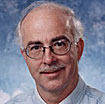Commentary on Psalm 107:1-3, 23-32
Psalm 107 begins the same way that Psalm 106 begins, but Psalm 106 concludes Book IV, and Psalm 107 begins Book V. Despite this division, the two psalms are related since 107:1–3 responds directly to the plea of 106:47, “Gather us from among the nations, that we may give thanks to your holy name.” The people have been “gathered in from the lands” (107:3), and as a thanksgiving psalm, Psalm 107 expresses the thanks that is anticipated from the people. As Robert Alter concludes, “The language suggests some sort of return from exile, and this psalm could conceivably have been recited at a public ceremony of thanksgiving during the return to Zion in the sixth century BCE.”1
A poetic sermon on hesed
Psalm 107 is a thanksgiving psalm, a carefully constructed poem beginning with an introduction (verses 1–3) and continuing with four scenarios (verses 4–9, 10–16, 17–22, 23–32) that illustrate the goodness and hesed (“steadfast love”) that are mentioned in verse 1. Each of the four scenarios contains two refrains. In the first, the needy cry out and their deliverance is recounted (verses 6, 13, 19, 28); in the second, those delivered are invited to thank God for their deliverance and for the hesed that moves God to act (verses 8, 15, 21, 31).
The poem concludes with a section that reflects upon God’s characteristic activity on behalf of the needy, including a final invitation that defines wisdom as attentiveness to and appreciation for God’s hesed (verses 33–43).
While Psalm 107 is a thanksgiving psalm, it also is something like a sermon on the fundamental character of God, which is best summarized by the word hesed (see Exodus 34:6). The word occurs in the first and last verses of the psalm, an envelope-structure that suggests that everything in between pertains to hesed, and hesed is also featured in the second refrain. Like any good sermon, Psalm 107 invites a response. Ultimately, the desired response is wisdom (verse 43). This wisdom is embodied by living in fundamental dependence upon God, and it is expressed in overflowing gratitude for God’s hesed.
Verses 23–32
The lection includes the fourth scenario. It is noticeably different from the first three, all of which narrate experiences that could have characterized the exile and the journey involved in the return from exile. Not so with verses 23–32: there was no sea passage from Babylon to Judah! So unique are verses 23–32 that Alter wonders “whether the whole section might have been regarded as a different poem that was somehow inserted into our psalm.”2
In any case, verses 23–32 perform a valuable function. The seafarers encounter God’s activity “in the deep” (verse 24), amid “the waves of the sea” (verses 25, 29), and as they descend “to the depths” (verse 26). Elsewhere, these locations represent cosmic forces of chaos and danger. It’s as if the poet intends this climactic scenario to be a worst-case scenario—that is, even in the face of threatening cosmic forces, one may cry out to God in anticipation of deliverance (verse 28) and ready to express thanks for the hesed that motivates God’s “wonderful works” (verse 31).
In this fourth scenario (as in the third; see verse 22), the expression of gratitude is to be accompanied by public testimony. Those who have been delivered are to praise God “in the congregation of the people” and “in the assembly of the elders” (verse 32). Genuine and overflowing gratitude cannot and will not remain a private experience!
To be noted is that in the background of all four scenarios stands Israel’s prototypical experience of deliverance, which also started with the people’s crying out (see Exodus 3:7). As James L. Mays observes, this exodus pattern “elevates the prayer for help, the voice of dependence on God, to the central place in the relation to God.”3 And one more related thing: the seafarers “cried to the LORD” (verse 28) when they “were at their wits’ end” (verse 27), or more literally, when “their wisdom had been swallowed up.” The word “wisdom” anticipates verse 43, and the effect is to suggest that true wisdom involves dependence upon God, even and perhaps especially in the worst of circumstances, trusting that God’s hesed will be sufficient.
Then and now
It is unlikely that contemporary folk will be able to identify directly with any of the four scenarios, but as Mays suggests, we can hear these illustrative cases as “open paradigms.”4 In other words, we stand to learn from Psalm 107, as well as from the preponderance of laments in the Psalter, that we finite and fallible human beings are essentially needy. As Isaac Bashevis Singer once put it, “I only pray when I’m in trouble, but I’m in trouble all the time.”5 If we realize this, the faithful response is to live in dependence upon God and with gratitude for God’s unfailing love.
But of course, we are immersed in a culture that encourages us to think and act as if we are (or should be) totally self-sufficient, in which case there is no need to ask God (nor anyone else) for help, and no need to thank anyone other than ourselves. Into a context like this, Psalm 107 injects a challenging word—that is, in the final analysis, self-sufficiency is a terrible illusion. Our lives depend on God, a God who hears our cries and responds out of an abundance of hesed.
We Christians see that love fully embodied in Jesus, whose stilling of a storm (see Mark 4:35–41, the Gospel lesson for the day) invites the same response invited by Psalm 107: the renunciation of self-sufficiency in order to live in dependence upon God and with gratitude for God’s goodness and unfailing love.
Notes
- Robert Alter, The Book of Psalms: A Translation with Commentary (New York: W. W. Norton, 2007), 383.
- Ibid., 386.
- James L. Mays, Psalms, Interpretation (Louisville: John Knox, 1994), 347.
- Ibid., 346.
- Quoted in Eugene Peterson, Answering God: The Psalms as Tools for Prayer (San Francisc: Harper & Row, 1989), 36.



June 23, 2024